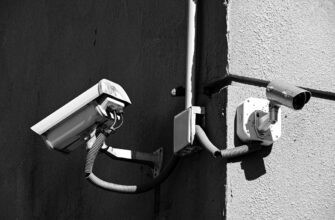- Understanding Airdrop Taxation in Thailand
- How Thailand Taxes Airdropped Cryptocurrency
- Calculating Your Airdrop Tax Liability
- Severe Penalties for Non-Compliance
- How to Legally Report Airdrop Income
- Proactive Penalty Avoidance Strategies
- Frequently Asked Questions (FAQ)
- Are all crypto airdrops taxable in Thailand?
- What if I hold airdropped tokens without selling?
- How do I value airdrops with no immediate market price?
- Can I deduct transaction fees?
- What if I received airdrops before 2023?
- Do decentralized (DeFi) airdrops follow the same rules?
Understanding Airdrop Taxation in Thailand
Cryptocurrency airdrops – the distribution of free tokens to wallet holders – have become popular in Thailand’s digital asset ecosystem. However, many recipients overlook a critical fact: The Revenue Department of Thailand classifies airdropped tokens as taxable income. Failure to properly report this income can trigger severe penalties including fines up to 200% of unpaid tax, monthly surcharges, and even criminal prosecution. This guide explains Thailand’s airdrop tax framework and how to avoid costly compliance mistakes.
How Thailand Taxes Airdropped Cryptocurrency
Under Section 40 of Thailand’s Revenue Code, airdrops qualify as “income from personal services” or “other income” based on these key principles:
- Tax Trigger Point: Tax liability arises when you gain control of the tokens (typically at wallet receipt)
- Valuation Method: Use the fair market value in THB at the time of receipt
- Tax Category: Classified as assessable income under Section 40(8) for individuals
- Exchanges Matter: Airdrops received on foreign exchanges still require Thai tax reporting
Calculating Your Airdrop Tax Liability
Follow this step-by-step process to determine what you owe:
- Identify the exact date and time of token receipt
- Determine THB value using exchange rates from credible sources like Bitkub or Binance TH at that moment
- Add this amount to your annual taxable income
- Apply Thailand’s progressive tax rates (0-35%) after deductions
Example: Receiving 1,000 XYZ tokens valued at ฿5/THB when airdropped = ฿5,000 taxable income. If in the 20% tax bracket, you’d owe ฿1,000 in tax.
Severe Penalties for Non-Compliance
Failure to report airdrop income invites escalating consequences:
- Initial Penalty: 1.5% monthly interest on unpaid tax
- Late Filing Surcharge: Up to 200% of tax owed if intentionally evaded
- Criminal Charges: Fines up to ฿500,000 + 7 years imprisonment for severe cases
- Asset Seizure: Revenue Department authority to freeze crypto wallets
How to Legally Report Airdrop Income
Protect yourself with these compliance steps:
- Maintain detailed records of all airdrops (dates, token amounts, THB values)
- Include airdrop income in your annual P.N.D.90 or P.N.D.91 tax return
- File electronically via the Revenue Department’s e-Filing portal by March 31st
- Retain documentation for 5 years (transaction IDs, wallet screenshots)
Proactive Penalty Avoidance Strategies
- Use crypto tax software like Koinly or Accointing for automatic THB valuation
- Set aside 15-35% of airdrop value immediately for tax payments
- Consult Thai crypto-specialized accountants before tax season
- Voluntarily disclose past omissions through the Revenue Department’s amnesty program
Frequently Asked Questions (FAQ)
Are all crypto airdrops taxable in Thailand?
Yes. The Revenue Department considers any token distribution with market value as taxable income, regardless of project origin.
What if I hold airdropped tokens without selling?
Tax applies upon receipt based on market value. Later sales may trigger additional capital gains tax if prices increase.
How do I value airdrops with no immediate market price?
Use the first available exchange rate after receipt. Document your valuation method for audit protection.
Can I deduct transaction fees?
Yes. Gas fees or network costs directly related to claiming the airdrop are deductible expenses.
What if I received airdrops before 2023?
Thailand’s crypto tax decree applies retroactively. File amended returns immediately to reduce penalties.
Do decentralized (DeFi) airdrops follow the same rules?
Yes. Tax treatment applies equally to centralized and decentralized token distributions.
Final Note: With Thailand’s Revenue Department increasing crypto tax audits, proactive compliance is essential. Document every airdrop, calculate liabilities accurately, and consult specialists to avoid devastating penalties in this evolving regulatory landscape.








